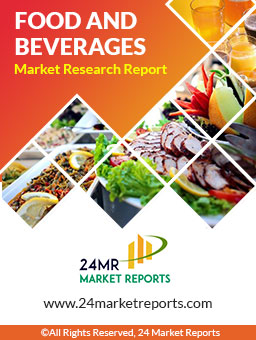
Download FREE Report Sample
Download Free samplePea protein is a food with a neutral taste that is used in dairy alternatives such as cheeses and yogurt. It is extracted from the yellow pea, Pisum sativum, and has a typical legume amino acid profile.
Pea Proteins Market aims to provide a comprehensive presentation of the global market for Pea Proteins, with both quantitative and qualitative analysis, to help readers develop business/growth strategies, assess the market competitive situation, analyze their position in the current marketplace, and make informed business decisions regarding Pea Proteins. Pea Proteins Market contains market size and forecasts of Pea Proteins in global, including the following market information:
Global Pea Proteins Market Revenue, 2018-2023, 2024-2029, ($ millions)
Global Pea Proteins Market Sales, 2018-2023, 2024-2029, (K MT)
Global top five Pea Proteins companies in 2022 (%)
The global Pea Proteins market was valued at US$ 772.5 million in 2022 and is projected to reach US$ 911.6 million by 2029, at a CAGR of 2.4% during the forecast period. The influence of COVID-19 and the Russia-Ukraine War were considered while estimating market sizes.
Global Pea Protein key players include Emsland, Roquette, Cosucra, Nutri-Pea, Shuangta Food etc. Global top five manufacturers hold a share over 85%.
Europe is the largest market, with a share over 80%, followed by North America and Asia Pacific, both have a share over 15% percent.
In terms of product, Medium Purity Pea Protein Isolate (80%-85%) is the largest segment, with a share over 70%. And in terms of application, the largest application is Health Food followed by Sports Nutrition Food.
We surveyed the Pea Proteins manufacturers, suppliers, distributors and industry experts on this industry, involving the sales, revenue, demand, price change, product type, recent development and plan, industry trends, drivers, challenges, obstacles, and potential risks.
Total Market by Segment:
Global Pea Proteins Market, by Type, 2018-2023, 2024-2029 ($ Millions) & (K MT)
Global Pea Proteins Market Segment Percentages, by Type, 2022 (%)
Low Purity Pea Protein (75%-80%)
Medium Purity Pea Protein (80%-85%)
High Purity Pea Protein (>85%)
Global Pea Proteins Market, by Application, 2018-2023, 2024-2029 ($ Millions) & (K MT)
Global Pea Proteins Market Segment Percentages, by Application, 2022 (%)
Sports Nutrition Food
Energy Drinks
Health Food
Pet Food
Others
Global Pea Proteins Market, By Region and Country, 2018-2023, 2024-2029 ($ Millions) & (K MT)
Global Pea Proteins Market Segment Percentages, By Region and Country, 2022 (%)
North America
US
Canada
Mexico
Europe
Germany
France
U.K.
Italy
Russia
Nordic Countries
Benelux
Rest of Europe
Asia
China
Japan
South Korea
Southeast Asia
India
Rest of Asia
South America
Brazil
Argentina
Rest of South America
Middle East & Africa
Turkey
Israel
Saudi Arabia
UAE
Rest of Middle East & Africa
Competitor Analysis
The report also provides analysis of leading market participants including:
Key companies Pea Proteins revenues in global market, 2018-2023 (Estimated), ($ millions)
Key companies Pea Proteins revenues share in global market, 2022 (%)
Key companies Pea Proteins sales in global market, 2018-2023 (Estimated), (K MT)
Key companies Pea Proteins sales share in global market, 2022 (%)
Further, the report presents profiles of competitors in the market, key players include:
Emsland
Roquette
Cosucra
Nutri-Pea
Shuangta Food
Yantai Oriental Protein Tech
Shandong Jianyuan Foods
Shandong Huatai Food
Outline of Major Chapters:
Chapter 1: Introduces the definition of Pea Proteins, market overview.
Chapter 2: Global Pea Proteins market size in revenue and volume.
Chapter 3: Detailed analysis of Pea Proteins manufacturers competitive landscape, price, sales and revenue market share, latest development plan, merger, and acquisition information, etc.
Chapter 4: Provides the analysis of various market segments by type, covering the market size and development potential of each market segment, to help readers find the blue ocean market in different market segments.
Chapter 5: Provides the analysis of various market segments by application, covering the market size and development potential of each market segment, to help readers find the blue ocean market in different downstream markets.
Chapter 6: Sales of Pea Proteins in regional level and country level. It provides a quantitative analysis of the market size and development potential of each region and its main countries and introduces the market development, future development prospects, market space of each country in the world.
Chapter 7: Provides profiles of key players, introducing the basic situation of the main companies in the market in detail, including product sales, revenue, price, gross margin, product introduction, recent development, etc.
Chapter 8: Global Pea Proteins capacity by region & country.
Chapter 9: Introduces the market dynamics, latest developments of the market, the driving factors and restrictive factors of the market, the challenges and risks faced by manufacturers in the industry, and the analysis of relevant policies in the industry.
Chapter 10: Analysis of industrial chain, including the upstream and downstream of the industry.
Chapter 11: The main points and conclusions of the report.

Speak to our Custom Research Team and get the Custom Research in a budget
Custom ResearchFrequently Asked Questions ?
A license granted to one user. Rules or conditions might be applied for e.g. the use of electric files (PDFs) or printings, depending on product.
A license granted to multiple users.
A license granted to a single business site/establishment.
A license granted to all employees within organisation access to the product.
Upto Working 24 to 48 hrs
Upto 72 hrs max - Weekends and Public Holidays
Online Payments with PayPal and CCavenue
Wire Transfer/Bank Transfer
Hard Copy




 Industry Market Size
Industry Market Size SWOT Analysis
SWOT Analysis Industry Major Players
Industry Major Players Revenue Forecasts
Revenue Forecasts Historical and Forecast Growth
Historical and Forecast Growth Profitability Analysis
Profitability Analysis
























